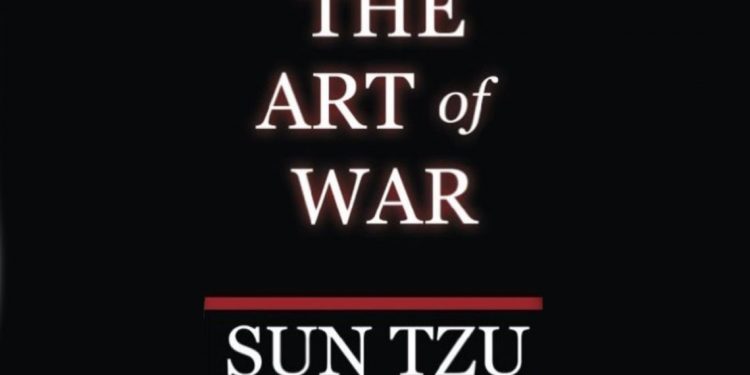Sudha Devi Nayak
The pandemic, no respecter of individuals or identities has laid low the human hubris. One way of reconciling to the situation of isolation and living in and out of lockdowns is to turn to books, because books are friends, books are community that see us through all vicissitudes of life. This is the time to look at the bookshelf, long ignored, with renewed interest and read the most unlikely of books we had passed over in busy circumscribed lives. One such book is the ‘Art of War’ written by Sun Tzu, the Chinese General, in 5th century BC. The book is revered today as a valuable treatise on military strategy and an important meditative commentary on war and peace. As relevant as when it was written it is studied as a compulsory text in major military schools. One of the earliest translations of the book is by Lionel Giles in the year 1910. His was the second translation of the book and a definitive one which includes a biography of Sun Tzu and the history of the text of ‘The Art of War’. Sun Tzu was a native of Ch’i State and came to the notice of Ho Lu, King of Wu who had carefully perused the 13 chapters of his book, was impressed with his strategy and appointed him his General.
There is much speculation on the actual existence of Sun Tzu and a biography of his life, as gathered from the various texts of Chinese scholars is wholly on conjecture and his text like our Upanishads, crowd sourced over the centuries. It is a composite text rather than the work of a single author. Sun Tzu can boast of an exceptionally long distinguished roll of commentators which would do honour to any classic. The legendary General may not have existed. But the lessons of Sun Tzu endure. The thirteen chapters in the book treat extensively the art of war through laying of plans for the campaigns of war to actual waging of the war through difficult conditions to securing victory through clever strategies and tactical decisions. Sun Tzu’s precepts are clear. ‘In Peace Prepare for War’, ‘In War Prepare for Peace’. ‘The best strategy is one that delivers victory without fighting.’ ‘Winning a hundred wars in a hundred battles is not the best outcome. Best is to subdue the enemy’s troops without ever engaging them on the battlefield.’ Sun Tzu goes on to say there should be no total preoccupation with war or peace but normally, to keep peace and not take to war unless driven by necessity. His sage advice to the conquerors is to treat the captured foes with kindness to augment their own strength.
One must understand the enemy, their plans, strengths, weaknesses, dispositions before leading the attack. Protracted wars drain resources and demoralise the forces. The physical terrain like deserts, rivers, hills, villages must be taken into careful account and the battlefield is a constant learning ground for refinements to campaigns, policies and procedures. While the Sovereign’s function is to give broad instructions, the wartime commander is the important person to take crucial decisions in any war. He should be inspiring enough to secure the loyalty of his soldiers, have a keen understanding of the strategic placement of his personnel, and know whether to take the offensive or the defensive to gain victory. War is about concealment and deception. ‘Let your plans be dark and impenetrable and when you move fall like a thunderbolt. Let your rapidity that of the wind, your compactness that of the forest.’ The services of spies are to be utilised to acquire foreknowledge of the foe because ‘an army without spies is like a man without ears or eyes.’ It is observed great generals like Alexander and Napoleon have achieved success in wars by largely adhering to similar principles as also in the more recent wars in Afghanistan and Middle East.
Nor is ‘The Art of War’ a dull account of mere warfare, it is a fascinating mixture of the poetic and the pragmatic. We can marvel at the language and image employed. ‘The onrush of a conquering force is like the bursting of pent up waters into a chasm a thousand fathoms deep’ or regarding the tactics of war he says they are ‘inexhaustible as Heaven and Earth, unending as the flow of rivers and streams, like the sun and the moon they end but to begin anew; like the four seasons they pass away but to return soon.’ Nor are Sun Tzu’s strategies confined to the battlefield but can be equally applied to matters of business and governance and even the travails of daily living. Leadership lessons are many for those on whom it is incumbent upon to lead for greater results in every sphere.






































